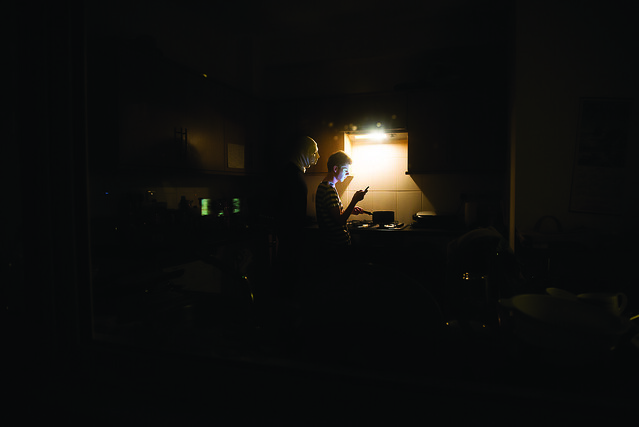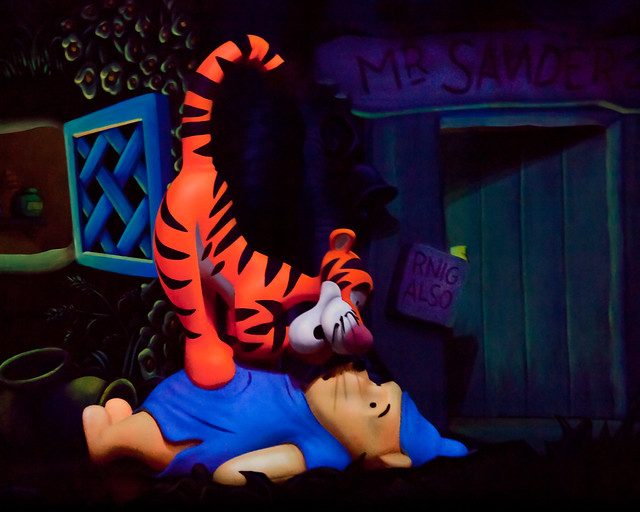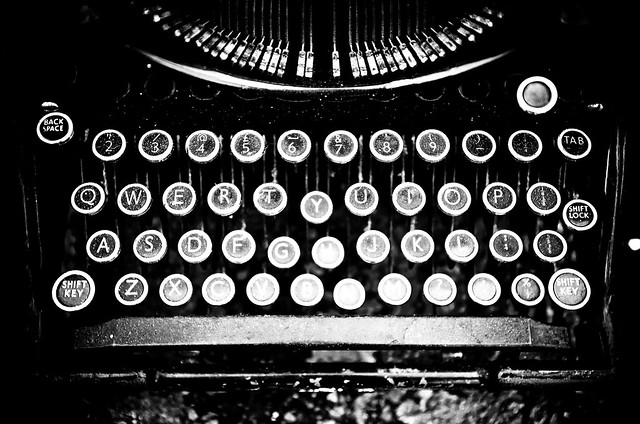In my last post, I talked about having stories that served as embarrassing dandelions, material that can embarrass the author. This post will be about the opposite-- stories that offend readers.
I believe that authors should not be censored, on a local, national or international basis. Each year I participate in Banned Books Week, and read about the books never purchased or bought. When you suppress words, you are smothering a sprout of story that demands a patch of sunlight and adequate watering.
Image source: https://farm4.staticflickr.com/3082/2358154067_4a125c57d1_z_d.jpg?zz=1
Despite this logic, governments continue to oppress those words, especially those with religious freedom laws. This year, for example, the Iranian government has imprisoned a cartoonist named Atena Farghadani for drawing the Iranian parliament as animals, and there's an online campaign to remit her sentence of twelve years imprisonment. 20-year old English major Tara Schultz in California wants four graphic novels eradicated from her university's curriculum, and Neil Gaiman has posted about the situation.
Despite my disgust for people that cannot handle stories or art that challenge them, I have found my open mind challenged by one online genre: creepypastas. Creepypasta are the Internet's form of spooky campfire tales, posted on the main website. As Matt Anderson explained it to me, "the Creepypasta wiki is just a hub of tales . . . [Creepypasta] started in imageboard sites, and forums. The idea was, you could write something, then post it somewhere. If it was good, someone would Copy it, and Paste it. Hence copying it and moving it all around the board. It's related to copypasta. But it's the scary-themed version. Hence, creepypasta."
Image source: https://farm8.staticflickr.com/7531/15936360096_d06da45f96_z_d.jpg
There's an entire web collection of these horror tales online, and they rarely get taken down. Often the tales rely on digging up a grain of truth and expanding on the grain to create willing suspension of belief. The hits are the stories that manage the blend of truth and fiction almost seamlessly, like "Candle Cove" by Kris Straub. The misses have a blog on their own, with snarky commentary in the comments.
Some of the myths involving media are quite laughable when they involve copyrighted work; I laughed when I read "Abandoned by Disney," for example, because while Disney has abandoned its fair share of resorts and parks (RIP, River Country Safari), they would never design a theme park centered around the animated adaptation of The Jungle Book with the cast members dressed in loincloths. Also, cast members are not called "mascots" and generally people from India do not wear loincloths if they can help it. Although the writer had done some research, the leaps of credibility he made were quite astounding.
Image source: https://farm9.staticflickr.com/8110/8537945324_6820fd6886_z_d.jpg
Image source: https://farm9.staticflickr.com/8110/8537945324_6820fd6886_z_d.jpg
Before I came across "Abandoned by Disney," I came across "Suicide Mouse," which also made me look at the story with a rather dubious expression. "Suicide Mouse" is a description of a "lost" Mickey Mouse cartoon that features black and white animation, creepy music, and the backgrounds going nuts. Although the video recreation is creepy (no it's NOT a real cartoon), this legend actually insulted me because Disney is rather open about their earlier dark cartoons, like "The Mad Doctor" and "Pluto's Judgment Day" and the animators were very concerned with creating quality animation. In addition, there were a series of comic strips where Mickey Mouse was suicidal, and it's easily found online. It goes to follow that if "Suicide Mouse" were real that Disney fans would've found it ages ago, long before the twenty-first century.
A few months later, piqued by curiosity, I read some other Lost Episodes, to see if they were as inaccurate as “Suicide Mouse.” Most of them were; the only one that could be plausible was a dark take on a “Tom and Jerry” cartoon. The writers seemed to use copyrighted works as a mean of evoking cheap thrills by using established characters that people knew and loved. This was explained as "corrupting innocence," and the scares lay in messing up nostalgia for older generations. I found this logic stupid because, as mentioned, a LOT of kids' shows have dark elements to them that the Lost Episodes don't address.
| This is a real cartoon. Image source: http://i.kinja-img.com/gawker-media/image/upload/s--nMZZTYDT--/c_fit,fl_progressive,q_80,w_636/17qlhip75dyffjpg.jpg |
Then I found one for Arthur, the PBS kid’s show. that was beyond violent and depressing, and way beyond the original spirit of the show. I got even angrier when I saw one that postulated that The Magic School Bus, another PBS show that is about teaching kids science, would have originally been an animated horror anthology and talked about a pilot episode set in Soviet Russia.
My kneejerk reaction was, "Seriously? How dare you! How dare you write such a story? Did you even watch the show?"
Image source: https://farm9.staticflickr.com/8301/8010057261_7f119cbec6_z_d.jpg
Why did I get angry? Because I watched a lot of PBS episodes as a kid. Magic School Bus was one of the shows that got me into science, as a matter of fact, and taught me how the world worked; its scary bits, mainly in the space episodes, created lasting phobias about asteroids and supernova. Before Arthur’s episodes lost quality over time, they captured an optimism about the world and stark reality about how no person is likable all the time, even if they’re the main character.
Obviously, I didn’t raise a public fuss about my taking offense. I didn’t write to the authors and ask how could they write such a thing, if they knew the first thing about how scary the shows could be. That sort of behavior isn’t nice, and the stories had already been written. I make it a point to not discourage young or anonymous writers from their work, since we all have a learning curve to work with, and just utter nothing when I cannot say a nice word.
Image source: https://farm1.staticflickr.com/22/24249991_e405a895fb_z_d.jpg
Image source: https://farm1.staticflickr.com/22/24249991_e405a895fb_z_d.jpg
Then I discouraged Matt Anderson when he suggested hypothetically doing a Lost Episode for Winnie the Pooh. I didn’t even let him finish his idea when he pitched it to me; I just said, “No. NO. Pooh Bear is off limits!” I felt bad afterward, but the feelings remain.
That has been the only time I have ever told someone I liked to not write a story, and that was because the idea touched a nerve. It’s the same problem with the other Lost Episodes: the Pooh Bear franchise has its share of horrors that a Lost Episode would never touch upon, like the Heffalumps and Woozles sequence or the monster Crud from the 1990s show. Any corruption of Christopher Robin, who did have a rather interesting life in the real world, would feel wrong, worse than the 2010 movie.
Image source: https://farm5.staticflickr.com/4043/4480010473_7e1aceebeb_z_d.jpg
This exchange has made me wonder if I’m any different from the moral guardians that would arrest a cartoonist for making fun of them, or if censorship always starts with a spark of anger at the offender. Do we merely have to realize that our knee-jerk reactions are personal to stop enabling censorship to happen? Could such a solution be that simple?
Perhaps anger fuels all violent oppression of ideas, which is why the European governments put books like Ulysses on trial, why school districts fire librarians for purchasing “immoral” books and why a 20-year old English major protested about books in a course she could have dropped if she had checked the syllabus. The trick is that we have to realize when our reactions are emotional rather than logical, and behave maturely. That is, that instead of oppressing the authors for putting terrible phrases and ideas in the world, that we let the ideas wash over us, and allow them to make waves on the beach. Then we pick up where we left off and turn our anger into creative storytelling.
Image source: https://farm4.staticflickr.com/3196/2326873674_433d92bb25_z_d.jpg
I’m not going to discourage any more Lost Episode stories, but I hope that by contributing to the genre and writing a better original story than what’s on the Creepypasta Wiki, that I’ll add material that compensates for the disgust and outrage. Instead of smothering an idea and letting it die, I’m going to nurture it another way, with actual knowledge of how an original show works and what the original spirit is , and see where it goes from there.
Also, don’t forget to support Atena Farghadani. Keep ideas alive, and ignore the extremists like the Revolutionary Guard and shameless young ingenues like Tara Schultz. Obviously writers and artists do not deserve jail time for writing a terrible or offensive work. At the most they deserve thinking time, to improve on their tales and to learn from their mistakes. I know that I’m going to be thinking a lot on how to write a better story than a twisted take on genuinely terrifying children’s shows, and to leave readers with a satisfied taste in their mouths.






